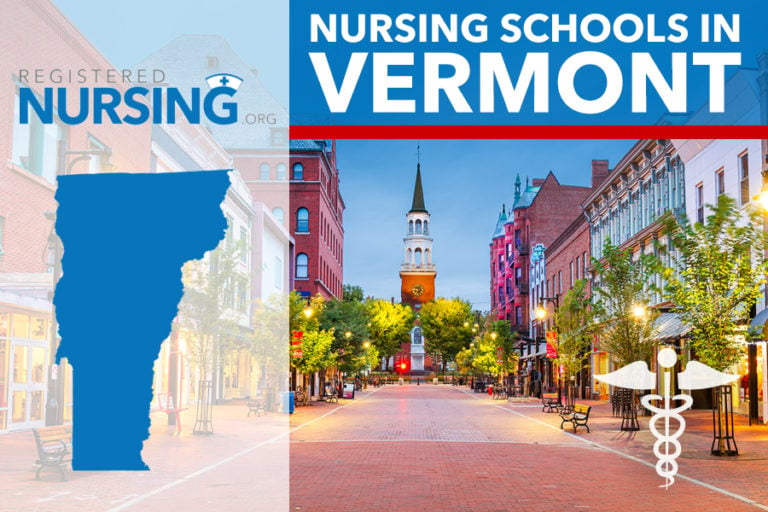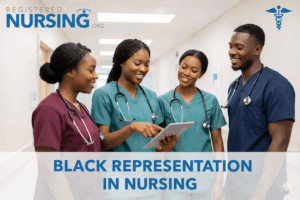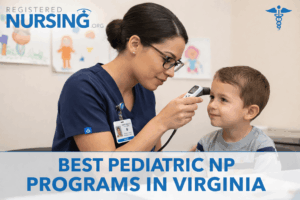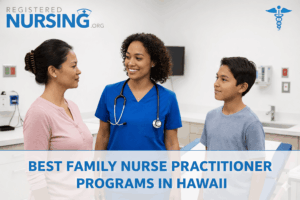Best Nursing Schools in Vermont

Vermont may be one of the nation’s smallest and least populated states, but for what it lacks in size, it makes up for it in natural beauty and tight-knit communities. It’s also well-known for having a large number of nursing programs and a positive outlook for future nurses. Within the next ten years, Vermonters are expecting an increase of 10% in nursing jobs due to the ongoing nursing shortage and an aging population in the state. If you’re hoping to become a nurse in Vermont, below are a few degree programs that you can find in the state and the differences between them.
2026 Best Nursing Schools in Vermont
Consistently High Performing Schools
Vermont demonstrates strong nursing education performance with several institutions maintaining consistently high NCLEX pass rates. Schools maintaining above 90% pass rates indicate robust curriculum and effective student preparation.
- Identified schools demonstrate exceptional student readiness for professional nursing practice
- Consistent high performance suggests reliable educational quality across multiple years
Top Performing Schools
Analysis of Vermont nursing programs reveals top-performing institutions based on aggregate NCLEX pass rates across multiple years.
- Top schools showcase exceptional student success and comprehensive nursing education
- Performance metrics provide critical insights for prospective nursing students
BSN vs ADN Pass Rate Comparison
Comparative analysis of Bachelor of Science in Nursing (BSN) and Associate Degree in Nursing (ADN) program performance offers valuable perspective on educational pathways.
- Different nursing degree tracks demonstrate varying levels of student preparation
- Insights help students understand potential advantages of specific nursing education routes
Vermont State University
Randolph, VT - Public 4-Year - vermontstate.edu
Associate - Nursing, A.S.
Online & Campus Based - Visit Website
Vermont State University's Associate of Science in Nursing offers a targeted pathway for Licensed Practical Nurses (LPNs) seeking RN certification through a flexible hybrid learning model. Designed to accommodate working professionals, this program combines remote coursework with in-person simulation lab experiences. Students benefit from state-of-the-art training facilities and a curriculum specifically tailored to NCLEX-RN exam preparation. The program boasts an exceptional 95% pass rate in 2023, highlighting its effectiveness in nursing education. Clinical internships and financial aid options, including scholarships from healthcare partners, make this an attractive option for career advancement. The hybrid format allows students to balance professional responsibilities while pursuing advanced nursing credentials.
- Hybrid learning format.
- Prepares for NCLEX-RN exam.
- 95% pass rate in 2023.
- Financial aid available.
- State-of-the-art simulation labs.
- Work while you learn.
- Seamless B.S.N. progression.
- High NCLEX-RN pass rates.
- Affordable tuition options.
- Clinical internships included.
Bachelor's - Nursing, B.S.N.
Campus Based - Visit Website
Vermont State University's Bachelor of Science in Nursing provides a robust educational pathway for aspiring healthcare professionals. The comprehensive four-year program distinguishes itself with 600+ clinical experience hours across premier medical facilities, ensuring students develop exceptional practical skills. With an impressive 92.98% NCLEX pass rate, graduates are strategically positioned for diverse nursing careers. The curriculum emphasizes critical thinking, person-centered care, and leadership development. Students can choose between traditional four-year tracks and flexible 1+1+2 options accommodating working professionals. ACT or SAT entrance exams are typically required. Over 80% of students receive financial aid, making this program both academically rigorous and financially accessible. The program's strong clinical partnerships and comprehensive training prepare students for dynamic healthcare environments.
- 600+ clinical experience hours
- 92.98% NCLEX pass rate
- Multiple program track options
- Clinical placements across region
- 82% employer preference for BSN
- Top medical center affiliates
- Flexible learning formats
- Comprehensive nursing curriculum
- High financial aid availability
- Leadership career preparation
University of Vermont
Burlington, VT - Public 4-Year - uvm.edu
Bachelor's - Nursing B.S.
Campus Based - Visit Website
The University of Vermont's Bachelor of Science in Professional Nursing offers an exceptional educational pathway with a remarkable 96.15% NCLEX pass rate in 2023. Students engage in a comprehensive 123-credit curriculum featuring 594 hours of clinical instruction and advanced simulation technology. The program emphasizes interdisciplinary learning, blending scientific knowledge with compassionate nursing practices. UVM provides early clinical experience starting in the sophomore year, with opportunities for foreign travel education and public health nursing immersion. Military-friendly and supported by expert faculty clinicians, students benefit from partnerships with top healthcare organizations and access to the UVM Health Network. No specific entrance exam details were mentioned for the bachelor's program.
- B.S. in Professional Nursing
- 123 credit hours to graduate
- On-campus, full-time format
- 594 hours of clinical instruction
- High NCLEX pass rates
- Accredited by CCNE
- State-of-the-art simulation technology
- Partnerships with healthcare organizations
- Comprehensive curriculum
- Financial aid options available
Norwich University
Northfield, VT - Private 4-year - norwich.edu
Bachelor's - Bachelor of Science in Nursing
Campus Based - Visit Website
Norwich University's Bachelor of Science in Nursing program offers a comprehensive four-year pathway to becoming a nurse leader, distinguished by its technology-integrated curriculum and robust clinical training. Students benefit from advanced simulation laboratories and strategic medical center affiliations that provide immersive hands-on learning experiences. The CCNE-accredited program emphasizes preparing globally minded nurses equipped to navigate complex healthcare environments. Graduates are fully eligible to sit for the NCLEX-RN exam, with the program maintaining strong preparation standards. While entrance exam requirements align with Norwich's general admissions criteria, students can expect a rigorous academic experience that blends cutting-edge technological resources with traditional nursing education principles. Military-friendly status adds an additional dimension to the program's inclusive approach to nursing education.
- Four-year program
- Campus-based learning
- Accredited by CCNE
- NCLEX-RN eligibility
- Simulation laboratories
- Clinical affiliations
- Technology-integrated curriculum
- Hands-on patient care
Vermont Nursing RN Programs – Diploma, ADN, and BSN Degrees
If you’re beginning your journey in nursing, you’ll need to choose an entry-level degree. In Vermont, there are three common paths for aspiring nurses: an Associate’s Degree in Nursing (ADN), a nursing diploma, or a Bachelor of Science in Nursing (BSN). Here’s a breakdown of what each option offers:
Comparing RN Diploma vs. LPN-to-RN vs. ADN Programs
If you’re looking to quickly enter the nursing field, nursing diploma or ADN programs are excellent options. These programs typically take one to two years to complete and provide the essential training needed to begin your nursing career. For those already working as an LPN, an LPN to RN bridge program might be a great fit. These programs leverage your existing experience, allowing you to earn either an ADN or BSN in a shorter timeframe than traditional routes while preparing you to become a licensed RN.
Common admissions requirements for ADN and diploma programs in Vermont include:
- High School Diploma or GED
- Minimum GPA, typically 2.5 or higher
- Some programs require scores from the TEAS (Test of Essential Academic Skills) or HESI Admission Assessment
For further admissions requirements and more information, check out our page on ADN degree programs.
More information on RN diplomas, LPN to RN, and ADN programs:
| Program | Estimated Tuition | Estimated Credits | Online Availability |
|---|---|---|---|
| ADN | $6,000 – $15,000 | 60-72 credits | Limited online courses, primarily on-campus |
| LPN to RN | $4,000 – $10,000 | 30-45 credits | Often hybrid; some online courses |
| RN Diploma | $5,000 – $12,000 | 40-60 credits | Rarely online; primarily on-campus |
ADN, LPN to RN, and nursing diploma programs require hands-on clinical training hours under supervision in order to be eligible for RN licensure. These will need to be completed in person, even if you opt for an online or hybrid program. Not sure if you’re ready for an RN career? Consider an LPN or CNA program in Vermont.
Comparing Traditional BSN vs. RN-to-BSN vs. ABSN Programs
If you’re seeking more comprehensive training than an ADN or nursing diploma can provide, a Bachelor of Science in Nursing (BSN) is an excellent option. A BSN can be pursued through several pathways. For those with no prior education or nursing experience, the traditional four-year BSN route is the way to go. However, if you already have an ADN and nursing experience, an RN to BSN program can allow you to complete your degree in less than three years. Additionally, if you hold a bachelor’s degree in a non-nursing field, an Accelerated BSN (ABSN) program offers a fast-track option to earn your BSN in a shorter time.
Admissions requirements for BSN programs in Vermont typically include:
- High School Diploma or GED
- Minimum GPA of 2.5-3.0
- Completion of prerequisite courses
For more information on BSN admissions requirements and more, see our BSN degrees page.
Several alternative pathways are also available to qualified students who want to pursue a BSN. Compare your options below:
| Program | Length | Estimated Tuition | Entrance Level |
|---|---|---|---|
| Traditional BSN | 4 years (120-126 credits) | $20,000 – $50,000 | First-time college students |
| RN to BSN | 1-2 years (30-35 credits) | $10,000 – $20,000 | Licensed RNs with an ADN |
| ABSN | 12-18 months (50-60 credits) | $25,000 – $40,000 | Non-nursing bachelor’s degree holders |
RN to BSN
For RN bridge programs visit:
A Vermont RN to BSN is a great option for nurses who are already licensed and have some experience in the field. This bridge program allows you to earn your BSN in a shorter time compared to a traditional BSN program. To qualify, you’ll need an associate’s degree in nursing (ADN) and an active RN license.
Accelerated BSN (ABSN)
Even if you have no prior nursing experience, you can still take a faster route to earning your BSN. If you already hold a bachelor's degree in a field other than nursing, you can complete a Vermont ABSN programs in as little as one year!
Advanced Practice RN & Nurse Practitioner Programs
Whether you’re an experienced nurse looking to advance your career or a student aiming for a higher level of nursing, Vermont offers several graduate-level nursing programs, including the Master's of Science in Nursing (MSN), a Nurse Practitioner (NP) program, a bridge program to enter advanced practice, or even a doctorate degree such as a Doctor of Nursing Practice (DNP), for those aiming for the highest level of education in nursing. To get started, you’ll need a BSN or MSN, along with an active, unencumbered RN license.
Earning a graduate-level degree in nursing opens the door to numerous Advanced Practice Registered Nursing (APRN) roles, leadership roles, and even careers in academia or research. Read more about APRN pathways in Vermont:
- Vermont Nurse Practitioner Programs
- Vermont MSN Program
- Vermont Accelerated MSN Program
- Vermont RN to MSN Programs
- Vermont Post Master’s Nursing Certificate Programs
- Vermont DNP Programs
Getting an RN License in Vermont
After graduating, the next step to becoming a licensed nurse in Vermont is to pass the NCLEX-RN exam. Once you've passed, you'll need to submit an application to the Vermont Board of Nursing, along with the required fee. To maintain your license, you will also need to complete any continuing education requirements set by the state.
Requirements for RN Licensure in Vermont
- Completion of an accredited RN program (ADN or BSN)
- Passing the NCLEX-RN exam
- Application to the Vermont Board of Nursing
- Renewal: 36 hours of CE every three years for license maintenance
Why Choose an Accredited RN Program?
The answer is straightforward: without attending an accredited nursing program, you won't be eligible for licensure. RN program accreditation ensures that the program meets the standards set by the state board, which is responsible for licensure. As you research nursing schools, make sure that the programs you're considering are accredited by recognized organizations, such as the Accreditation Commission for Education in Nursing (ACEN) and the Commission on Collegiate Nursing Education (CCNE)). This is a crucial step in your path to becoming a licensed nurse.
Cities With Nursing Programs in Vermont
List of Nursing Schools in Vermont
Burlington, VT
University of Vermont
- Bachelor's - Nursing B.S.
Campus Based - Website
- B.S. in Professional Nursing
- 123 credit hours to graduate
- On-campus, full-time format
- 594 hours of clinical instruction
- High NCLEX pass rates
- Accredited by CCNE
- State-of-the-art simulation technology
- Partnerships with healthcare organizations
Northfield, VT
Norwich University
- Bachelor's - Bachelor of Science in Nursing
Campus Based - Website
- Four-year program
- Campus-based learning
- Accredited by CCNE
- NCLEX-RN eligibility
- Simulation laboratories
- Clinical affiliations
- Technology-integrated curriculum
- Hands-on patient care
Randolph, VT
Vermont State University
- Associate - Nursing, A.S.
Online & Campus Based - Website
- Hybrid learning format.
- Prepares for NCLEX-RN exam.
- 95% pass rate in 2023.
- Financial aid available.
- State-of-the-art simulation labs.
- Work while you learn.
- Seamless B.S.N. progression.
- High NCLEX-RN pass rates.
- Bachelor's - Nursing, B.S.N.
Campus Based - Website
- 600+ clinical experience hours
- 92.98% NCLEX pass rate
- Multiple program track options
- Clinical placements across region
- 82% employer preference for BSN
- Top medical center affiliates
- Flexible learning formats
- Comprehensive nursing curriculum
Latest Articles & Guides
One of the keys to success as a registered nurse is embracing lifelong learning. Our articles and guides address hot topics and current events in nursing, from education to career mobility and beyond. No matter where you are on your nursing journey, there’s an article to help you build your knowledge base.
Browse our latest articles, curated specifically for modern nurses.



